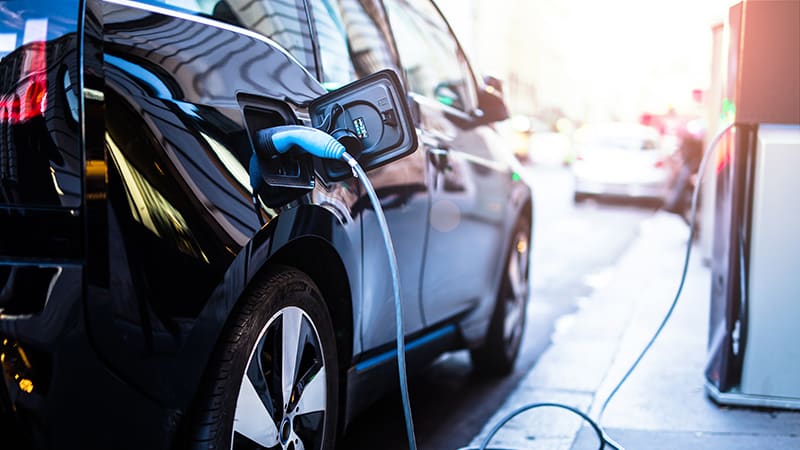By Julianne Basinger | Western Resource Advocates |
Proposal Before the Air Quality Control Commission Would Create Substantial Economic and Health Benefits for Coloradans
Western Resource Advocates, Environmental Defense Fund, Natural Resources Defense Council, Sierra Club, and Southwest Energy Efficiency Project today filed a brief and expert reports in support of a proposal before the Colorado Air Quality Control Commission to adopt a zero-emission vehicle (ZEV) program for the state.
The conservation groups encouraged the commission to approve the ZEV proposal. The commission will hold a prehearing conference on July 17 and will issue its decision on the matter following the formal public hearing that starts on Aug. 13.
“Colorado needs deep and significant reductions in greenhouse gas emissions from the transportation sector, including passenger vehicles, in order to meet statewide targets that are in line with science-based recommendations for addressing climate change,” said Erin Overturf, deputy director of Western Resource Advocates’ Clean Energy Program. “Adopting a ZEV program would help achieve these reductions and provide economic benefits for Coloradans, contributing to a healthy future for ourselves and future generations.”
“Putting more low-emission and zero-emission cars on our Colorado roads will provide benefits for all of us. It will drive innovation, help us achieve deep reductions in climate and other health-harming pollution, and save Coloradans hard-earned money at the gas pump,” said Environmental Defense Fund Attorney Laura Shields.
“From reducing pollution and consumer costs to supporting the state’s greenhouse gas emission targets, this rule is a necessary step to make sure Coloradans can access all available zero-emission vehicles,” said Noah Long, Senior Attorney at Natural Resources Defense Council.
“Adopting the ZEV program is one of the single biggest actions Colorado could take to reduce air pollution, tackle climate change, save consumers money, and increase the number of electric vehicles available at Colorado dealerships,” said Emily Gedeon, Conservation Program Director with the Colorado Sierra Club. “The faster we move our transportation away from fossil fuels, the better — for our wallets, for our health, and for our climate.”
“This rule will bring cleaner, more efficient cars to Colorado,” said Matt Frommer, Senior Transportation Associate at the Southwest Energy Efficiency Project. “It will save us money and prevent pollution — benefiting every Coloradan.”
Adoption of a ZEV program in Colorado would increase electric vehicle sales in the state and serve as a catalyst not only for deep reductions in damaging climate pollution, but also significant reductions in hazardous air pollution and ozone. These reductions would also create large economic savings for Coloradans across the state.
An initial estimate by the Air Pollution Control Division projects that the ZEV program in Colorado would reduce damaging climate pollution by more than 2.2 million metric tons through 2030, representing a social savings of $86 million to $260 million. This would be a substantial contribution toward reducing greenhouse gas pollution and would help maintain the Colorado way of life we all cherish.
The ZEV program will position Colorado for more significant, post-2025 growth in ZEVs, by spurring near-term investments in vehicle electrification and early action to introduce ZEVs into the fleet. When this anticipated growth is considered as part of the overall clean cars program to the year 2050, the climate benefits are valued at $6 billion to $18 billion, net present value.
A ZEV program would also save Colorado consumers money. Implementation of the ZEV program as part of the Colorado Advanced Clean Cars regulation would result in $452 million of annual statewide savings in 2030 under a conservative analysis, and $825 million under an analysisassuming a high cost of gasoline.
Consumers who purchase ZEVs already enjoy substantial savings in fuel and maintenance costs over the life of the vehicle. When combined with declining up-front costs, these operational savings would result in total cost-of-ownership parity between electric vehicles and conventional vehicles between 2022 and 2026, without even accounting for substantial tax incentives that are anticipated to remain in effect.
CONTACT
Julianne Basinger, Western Resource Advocates, julianne.basinger@westernresources.org, 801-406-8664
Sharyn Stein, Environmental Defense Fund, sstein@edf.org, 202-572-3396
Nadia Perl, Natural Resources Defense Council, nperl@nrdc.org, 510-928-1717
Larisa Manescu, Sierra Club, larisa.manescu@sierraclub.org, 512-964-7144
Matt Frommer, Southwest Energy Efficiency Project, mfrommer@swenergy.org, 908-432-1556
OUR PARTNERS
Western Resource Advocates works to protect the West’s land, air, and water so that our communities thrive in balance with nature. WRA’s team of scientists, lawyers, and economists craft and implement innovative solutions to the most complex natural resource challenges in the region. For more information, visit www.westernresourceadvocates.org and follow us on Twitter @wradv.
Environmental Defense Fund (www.edf.org), a leading international nonprofit organization, creates transformational solutions to the most serious environmental problems. EDF links science, economics, law and innovative private-sector partnerships. Connect with us on our Voices blog, Twitter and Facebook.
The Natural Resources Defense Council (NRDC) is an international nonprofit environmental organization with more than 3 million members and online activists. Since 1970, our lawyers, scientists, and other environmental specialists have worked to protect the world’s natural resources, public health, and the environment. NRDC has offices in New York City, Washington, D.C., Los Angeles, San Francisco, Chicago, Bozeman, MT, and Beijing. Visit us at www.nrdc.org and follow us on Twitter @NRDC.
The Sierra Club is America’s largest and most influential grassroots environmental organization, with more than 3 million members and supporters. In addition to helping people from all backgrounds explore nature and our outdoor heritage, the Sierra Club works to promote clean energy, safeguard the health of our communities, protect wildlife, and preserve our remaining wild places through grassroots activism, public education, lobbying, and legal action. For more information, visit www.sierraclub.org.
The Southwest Energy Efficiency Project (SWEEP) is a public interest organization advancing more efficient energy use and clean transportation options in Arizona, Colorado, Nevada, New Mexico, Utah, and Wyoming. For more information, visit www.swenergy.org
